Barbara Moraff (born 1939 Paterson, New Jersey) is an American poet of the Beat generation living in Vermont. [1]
Barbara Moraff (born 1939 Paterson, New Jersey) is an American poet of the Beat generation living in Vermont. [1]
Jack Kerouac called Moraff "the baby of the Beat generation" [2] because she was just 18 when they met but was already being published by Leroi Jones and in Evergreen Review. She was reading in various New York City coffeehouses when she was able to get out of a very restrictive home environment—complicated by plastic surgery needed to repair her face after a mutilation. In a 1964 interview with Paideuma (University of Maine), Kerouac called Moraff "the best girl poet writing in America". " [2]
In the 1960s Moraff was experimenting writing SOUND poetry. [3] Robert Duncan sent a poem by her to Denise Levertov. [4]
She studied human nutrition to create a nutritional plan for her son, who, like her, also had cystic fibrosis. This resulted in the writing of The Cookbook/Handbook to Nutrition for Kids Who Have Cystic Fibrosis. Moraff self-published the book; it can be found in the CF Foundation's library.[ citation needed ]
Moraff began writing poetry again in 1976 when asked by a feminist lesbian press to sit on its editorial board. There she edited the magazine CONCH and co-edited an anthology of local women's writings and art. This included the first published work of Louise Erdrich.
In 2007, Moraff was editing and collating a collection of previously published and unpublished work and was also working on a new collection (tentative title Machig Labdron Songs). Forthcoming in late spring 2007 is a booklet from Longhouse Publishers, FOOTPRINT.
Moraff and her partner moved to Vermont in late 1961, where they built a small one-room cabin on land belonging to a former Black Mountain College student with whom they exchanged work for rent.
Moraff's first child, Alesia, was born in 1966, and shortly afterward Moraff bought a remote hilltop farm in Strafford, Vermont. She taught herself organic farming practices and for many years raised the family's food and kept a cow and two goats. She made cheese and studied medicinal herbs. Her son Marco was born in 1971. Marco grew healthy and ran long-distance track in high school. He became an artist, and many of his works are now in private collections. He also designed and built furniture using driftwood, branchwood, marble, and slate. He died in April 2007 as a result of his cystic fibrosis.
In 1972 he was diagnosed with cystic fibrosis. Moraff met Chogyam Trungpa in 1974 through Allen Ginsberg. She thought she could learn Tibetan Buddhist breathing methods to help Marco develop lungs strong enough to resist the early ravages of CF. Moraff continued her Buddhist practice and study, attending the last seminary at which Trungpa was present, and later, ngedon school.
In 1973, Moraff founded Vermont Artisans, Vermont's first craft sales and educational cooperative.
Although partially disabled, Moraff is still able to produce some pottery, mostly commissioned dinner sets. In the summer, she bakes wholegrain sourdough bread and sells it at local farmers' markets. [1] Moraff has appeared in two movies: an anti-war film Button, Button (aired on CBS) and Enlightened Society (Vajradhatu Films).
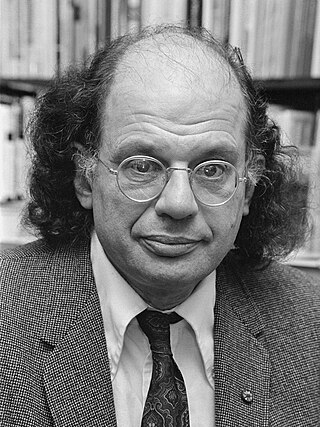
Irwin Allen Ginsberg was an American poet and writer. As a student at Columbia University in the 1940s, he began friendships with Lucien Carr, William S. Burroughs and Jack Kerouac, forming the core of the Beat Generation. He vigorously opposed militarism, economic materialism, and sexual repression, and he embodied various aspects of this counterculture with his views on drugs, sex, multiculturalism, hostility to bureaucracy, and openness to Eastern religions.

The Beat Generation was a literary subculture movement started by a group of authors whose work explored and influenced American culture and politics in the post-World War II era. The bulk of their work was published and popularized by Silent Generationers in the 1950s, better known as Beatniks. The central elements of Beat culture are the rejection of standard narrative values, making a spiritual quest, the exploration of American and Eastern religions, the rejection of economic materialism, explicit portrayals of the human condition, experimentation with psychedelic drugs, and sexual liberation and exploration.
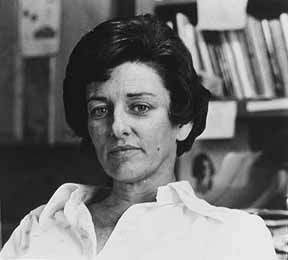
Anne Sexton was an American poet known for her highly personal, confessional verse. She won the Pulitzer Prize for poetry in 1967 for her book Live or Die. Her poetry details her long battle with bipolar disorder, suicidal tendencies, and intimate details from her private life, including relationships with her husband and children, whom it was later alleged she physically and sexually assaulted.
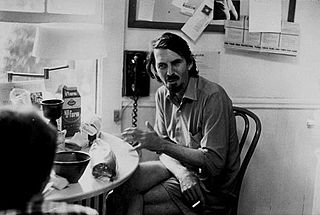
Robert White Creeley was an American poet and author of more than sixty books. He is usually associated with the Black Mountain poets, though his verse aesthetic diverged from that school. He was close with Charles Olson, Robert Duncan, Allen Ginsberg, John Wieners and Ed Dorn. He served as the Samuel P. Capen Professor of Poetry and the Humanities at State University of New York at Buffalo. In 1991, he joined colleagues Susan Howe, Charles Bernstein, Raymond Federman, Robert Bertholf, and Dennis Tedlock in founding the Poetics Program at Buffalo. Creeley lived in Waldoboro, Buffalo, and Providence, where he taught at Brown University. He was a recipient of the Lannan Foundation Lifetime Achievement Award.

Anne Waldman is an American poet. Since the 1960s, Waldman has been an active member of the Outriders Poetry Project experimental poetry community as a writer, performer, collaborator, professor, editor, scholar, and cultural/political activist. She has also been connected to the Beat Generation poets.
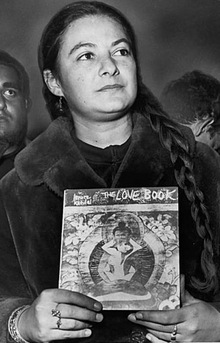
Lenore Kandel was an American poet, affiliated with the Beat Generation and Hippie counterculture.

Diane di Prima was an American poet, known for her association with the Beat movement. She was also an artist, prose writer, and teacher. Her magnum opus is widely considered to be Loba, a collection of poems first published in 1978 then extended in 1998.

American poetry refers to the poetry of the United States. It arose first as efforts by American colonists to add their voices to English poetry in the 17th century, well before the constitutional unification of the Thirteen Colonies. Most of the early colonists' work was similar to contemporary English models of poetic form, diction, and theme. However, in the 19th century, an American idiom began to emerge. By the later part of that century, poets like Walt Whitman were winning an enthusiastic audience abroad and had joined the English-language avant-garde.
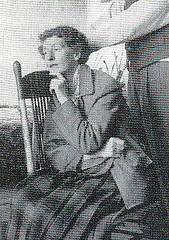
Madeline Gleason was a United States poet and dramatist. She was the founder of the San Francisco Poetry Guild. In 1947, she became the director of the first poetry festival in the United States, laying the groundwork for what became known as the San Francisco Renaissance. She was, with Helen Adam, Barbara Guest, and Denise Levertov, one of only four women whose work was included in Donald Allen's landmark anthology, The New American Poetry 1945-1960 (1960).
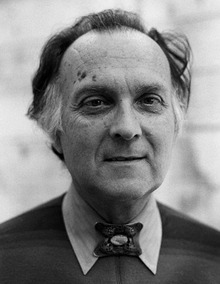
Robert Edward Duncan was an American poet and a devotee of Hilda "H.D." Doolittle and the Western esoteric tradition who spent most of his career in and around San Francisco. Though associated with any number of literary traditions and schools, Duncan is often identified with the poets of the New American Poetry and Black Mountain College. Duncan saw his work as emerging especially from the tradition of Pound, Williams and Lawrence. Duncan was a key figure in the San Francisco Renaissance.

The term San Francisco Renaissance is used as a global designation for a range of poetic activity centered on San Francisco, which brought it to prominence as a hub of the American poetry avant-garde in the 1950s. However, others felt this renaissance was a broader phenomenon and should be seen as also encompassing the visual and performing arts, philosophy, cross-cultural interests, and new social sensibilities.
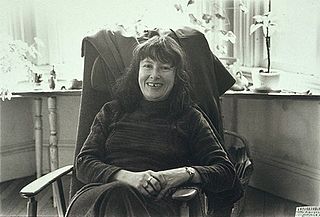
Priscilla Denise Levertov was a British-born naturalised American poet. She was heavily influenced by the Black Mountain Poets and by the political context of the Vietnam War, which she explored in her poetry book The Freeing of the Dust. She was a recipient of the Lannan Literary Award for Poetry.

The New American Poetry 1945–1960 is a poetry anthology edited by Donald Allen and published in 1960. It aimed to pick out the "third generation" of American modernist poets, and included quite a number of poems fresh from the little magazines of the late 1950s. In the longer term it attained a classic status, with critical approval and continuing sales. It was reprinted in 1999. As of 2024, Edward Field and Gary Snyder are the only contributors still living.
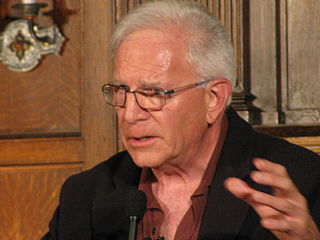
Michael Palmer is an American poet and translator. He attended Harvard University, where he earned a BA in French and an MA in Comparative Literature. He has worked extensively with Contemporary dance since the 1970s and has collaborated with many composers and visual artists. Palmer has lived in San Francisco since 1969.
Verandah Porche is an American poet living in Guilford, Vermont.

The City Lights Pocket Poets Series is a series of poetry collections published by Lawrence Ferlinghetti and City Lights Books of San Francisco since August 1955.
Chelsea was a small biannual literary magazine based in New York City. Edited for many years by Sonia Raiziss and Alfredo de Palchi, it published poetry, prose, book reviews, and translations with an emphasis on translations, art, and cross-cultural exchange.

Rochelle Bass Owens is an American poet and playwright.
Carol Bergé (1928–2006) was an American poet, highly active in the literary, performing and visual arts renaissance of the 1960s and 1970s in New York City. In the 1980s a scandal in academia and her choice to fictionalize it in her 1984 book Secrets, Gossip and Slander cost her teaching jobs as well as support from the publishing industry. From there she championed antiquing as a profession, taking an extended sabbatical from writing until the last few years of her life, when she completed two books, both published posthumously.
Joanna McClure is an American poet associated with the writers of the San Francisco Renaissance and the Beat Generation. According to author Brenda Knight, McClure wrote prolifically from the 1950s onward, filling dozens of artist's notebooks with poems and producing "as much writing as [Jack] Kerouac did, though she kept much of hers private."
{{cite web}}: CS1 maint: archived copy as title (link)